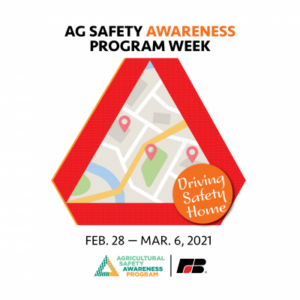How often do you say this: “do as I say, not as I do”?
The farm can be a fun, engaging, and nostalgic place to raise children; however, life on the farm comes with inherent risks that require certain precautions to make the farm a safe place for kids. The curious nature of children makes this especially difficult, as they often exhibit a lack of fear or a clear understanding of danger. According to the Children’s Safety Network, 42% of fatal injuries to youth on U.S. farms involve machinery and motor vehicles (e.g. tractors, ATVs, etc.) while another 16% of fatal injuries are due to drowning. As the school year comes to a close and your own children and grandchildren spend more time on the farm, use your actions and attitude to establish safety as a priority.
In addition to being a positive role model, make time to identify hazards around the farm and implement changes to improve safety. We have included some of these hazardous “hot spots” in the table below, along with recommendations for injury prevention.
| Hazards for Children | Recommendations to Prevent Injury |
| Workshops, chemical and grain storage areas | Install gates, doors, or other locking systems to keep children out
Explain the meaning of warning signs around the farm Clean and dispose of empty chemical containers Establish designated safe play areas |
| Machinery and equipment | Equipment should be turned off, disengaged, and inaccessible
Leave front end loaders and similar equipment in the down position Lock vehicle cabs after use Keep vehicle keys out of reach of children Never allow children to play around machinery Never allow children (or anyone) to be an extra rider on a tractor |
| Livestock Pens | Only allow children to work with livestock under adult supervision
Secure livestock pens so children cannot wander into the area |
If you’re looking for fun ways to talk with children about farm safety, check out this farm safety activity book created by the National Child Safety Council. The book includes games, puzzles, crafts, and more on a wide array of topics from livestock and tractor safety to first aid.
For more details on age-specific hazards, protective measures, and appropriate tasks for youth check out our NJAES factsheet titled “Farm Safety Tips for Children”.
Source: Brennan, M.F. and Brumfield, R.B. “FS937: Farm Safety Tips for Children.” Rutgers University, March 1999. https://njaes.rutgers.edu/pubs/publication.php?pid=FS937. Accessed on 10 June 2021.

